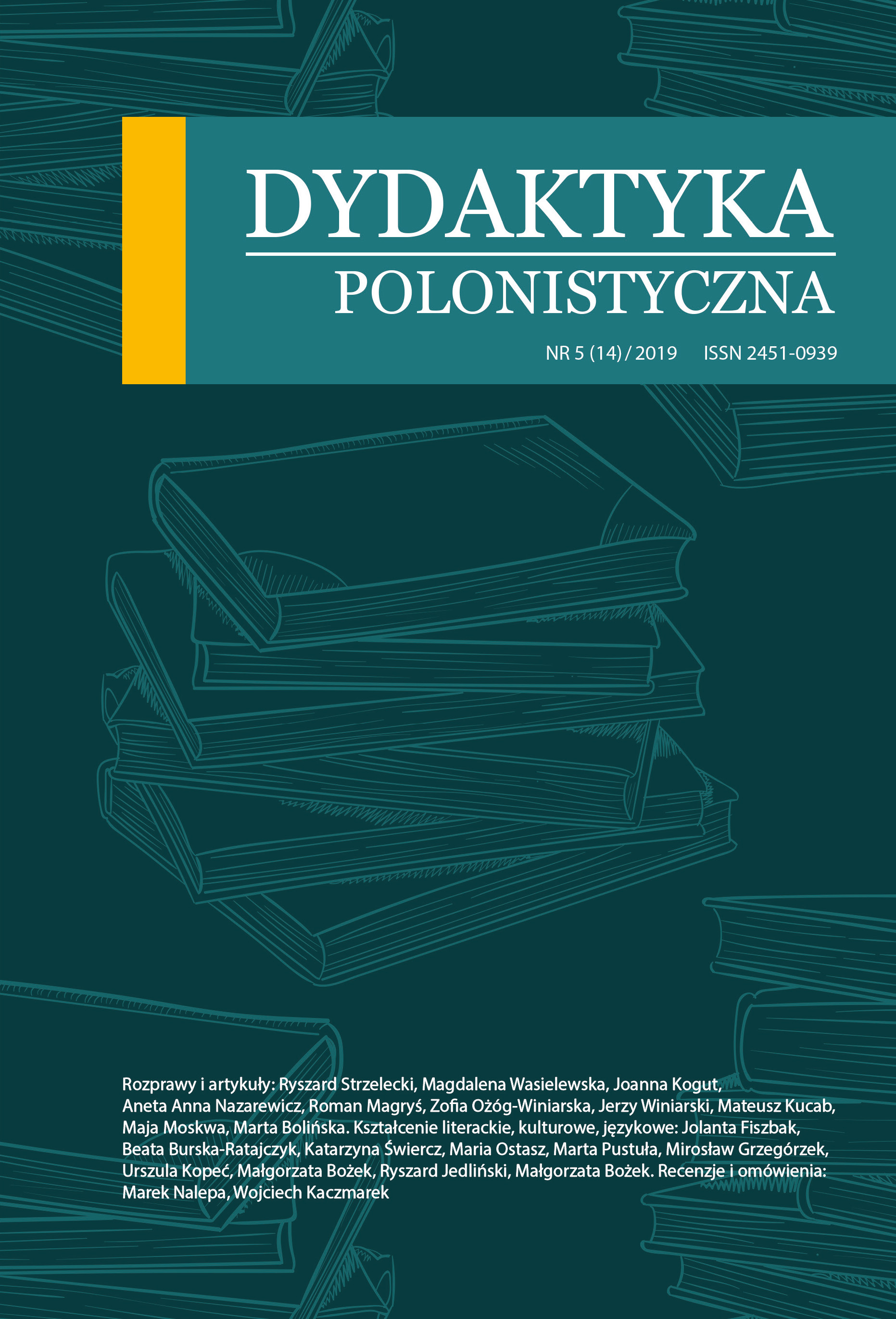Człowiek a Bóg w dramatach Amelii Hertzówny
DOI:
https://doi.org/10.15584/dyd.pol.14.2019.4Słowa kluczowe:
amelia hertz, god, søren kierkegaard, dramaAbstrakt
Amelia Hertz still is an unfamiliar play wright. Recently the papers on her works are being released more often. Researchers do not take an interest in the relation of man towards God, though. This relation is a crucial element of her dramas. The importance of this theme is presented by the very structure of respective works. Zburzenie Tyru is a staging of biblical events. Yseult o Białych Dłoniach is structured like a confession. The events of Wielki król are motivated by a constant fear of the Wrath of God, who will inflict justice upon Byzantium. The ultimate defeat of the heroes is summarised with the words Because only God is eternal. The main characters of the dramas in their relation towards God correspond to the Kierkegaard’s typology: the aesthetical man, the ethical man and the religious man. Hertz uses Kierkegaard’s philosophy Either/Or, showing different variants of the same story and what are the consequences of making decisions.Pobrania
Opublikowane
2019-12-15
Jak cytować
Nazarewicz, A. A. (2019). Człowiek a Bóg w dramatach Amelii Hertzówny. Dydaktyka Polonistyczna, 14(5), 46–57. https://doi.org/10.15584/dyd.pol.14.2019.4
Numer
Dział
ANALIZY I INTERPRETACJE


